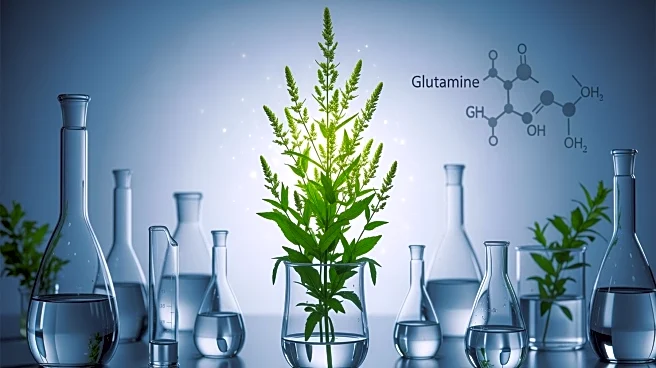What's Happening?
A study published in Nature investigates the impact of glutamine supplementation on the callus of Sonchus arvensis L., a plant known for its medicinal properties. The research explores how glutamine influences
callus morphology, anatomy, and metabolite production, revealing the presence of unique compounds with antioxidant and antimalarial potential. The study highlights the role of glutamine in regulating plant growth and development, suggesting its potential to enhance bioactive compound production in medicinal plants.
Why It's Important?
The findings offer insights into the use of glutamine as a tool for optimizing the production of bioactive compounds in medicinal plants. This could have implications for the development of natural therapeutic agents and contribute to the advancement of plant-based medicine. Understanding the mechanisms by which glutamine affects metabolite production may lead to more effective cultivation techniques and increased availability of medicinal compounds.
What's Next?
Further research is needed to elucidate the molecular mechanisms by which glutamine influences metabolite biosynthesis in S. arvensis L. This could involve exploring the genes and pathways involved in secondary metabolite production, potentially leading to new applications in plant-based medicine.
Beyond the Headlines
The study underscores the importance of exploring natural sources for therapeutic agents and highlights the potential of plant-based research in addressing health challenges. It reflects a growing interest in harnessing the power of nature to develop innovative solutions for medical and environmental issues.











